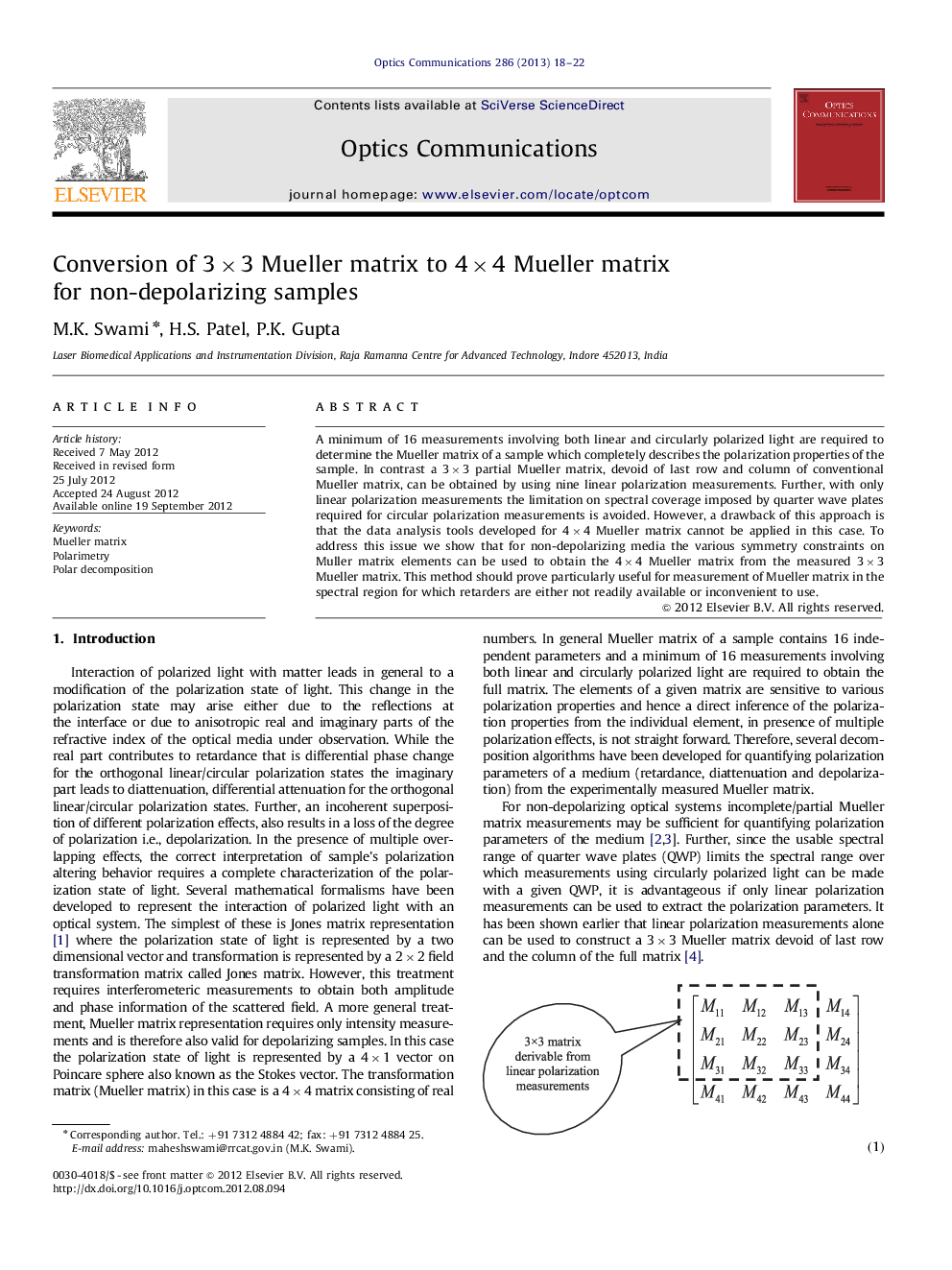| Article ID | Journal | Published Year | Pages | File Type |
|---|---|---|---|---|
| 1536236 | Optics Communications | 2013 | 5 Pages |
Abstract
A minimum of 16 measurements involving both linear and circularly polarized light are required to determine the Mueller matrix of a sample which completely describes the polarization properties of the sample. In contrast a 3Ã3 partial Mueller matrix, devoid of last row and column of conventional Mueller matrix, can be obtained by using nine linear polarization measurements. Further, with only linear polarization measurements the limitation on spectral coverage imposed by quarter wave plates required for circular polarization measurements is avoided. However, a drawback of this approach is that the data analysis tools developed for 4Ã4 Mueller matrix cannot be applied in this case. To address this issue we show that for non-depolarizing media the various symmetry constraints on Muller matrix elements can be used to obtain the 4Ã4 Mueller matrix from the measured 3Ã3 Mueller matrix. This method should prove particularly useful for measurement of Mueller matrix in the spectral region for which retarders are either not readily available or inconvenient to use.
Related Topics
Physical Sciences and Engineering
Materials Science
Electronic, Optical and Magnetic Materials
Authors
M.K. Swami, H.S. Patel, P.K. Gupta,
